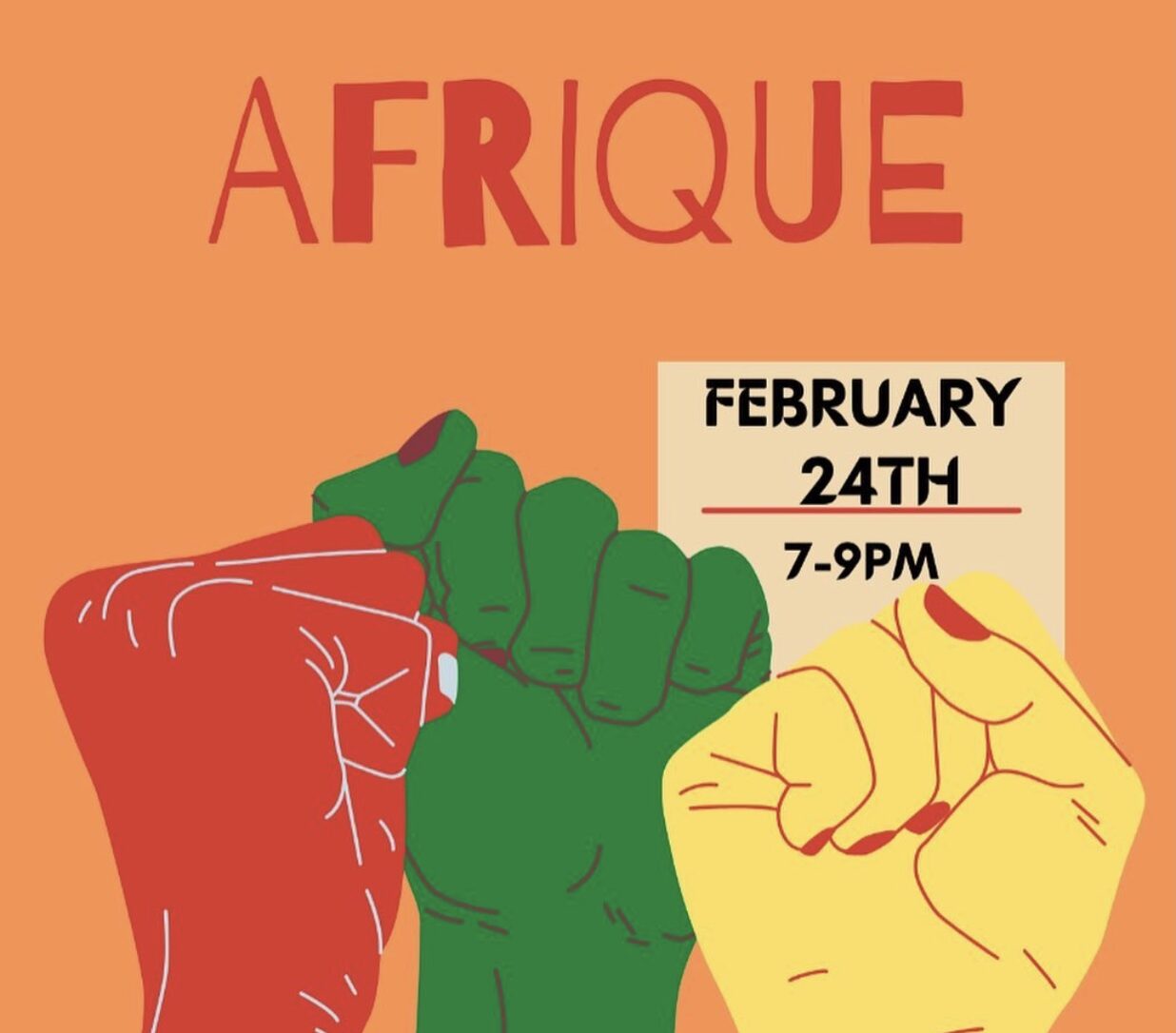The Black Student Association encourages all students to participate in their final events for Black History Month
The month of February is almost coming to a close and so are the chances of attending one of the Black History Month events put on by the Black Student Association.
Black Student Association President Kayla Jones says it is important for people to educate themselves on black history, especially in North Dakota.
“I think it is important to celebrate Black History Month in North Dakota in particular because there is not a lot of knowledge on black history around here,” said Jones. “It is important to celebrate our culture and freedom from slavery in America. It has to be highlighted for a marginalized group.”
Previous events for the month have included a showing of “Thomas Sowell: Common Sense in a Senseless World” and a documentary film about Martin Luther King, Jr.
“The educational piece of it was really important because a lot of times with Black History Month, we just celebrate with dances or fashion,” said Jones. “The Thomas Sowell film, however, was very intricate and contributes to systemic racism that a lot of people don’t know about.”
For those who are unaware of the meaning of systemic racism, the Cambridge Dictionary defines the term as the policies and practices that exist throughout a whole society or organization, and result in and support a continued unfair advantage to some people and unfair or harmful treatment of others based on race.
Two panel discussions were also held earlier this month to educate students on different experiences within leadership. The panels included Terry Hogan, The City of Fargo’s Director of Diversity, Equity and Inclusion; Hollie Mackie, Associate Professor in NDSU’s School of Education: Frederick Edwards, Community Engagement Specialist and motivational speaker: Trevor Matthew, chair of FMWF Chamber Professionals of Color; William Nganje, Agribusiness and Applied Economics chair; Phil Hunt, Registrar and Larry Napoleon, Associate Professor in the School of Education.
“We chose these events because we wanted to have a mix of fun and educational pieces because that is what black culture is all about,” Jones said. “The only thing we didn’t have time to do was have an event where we bring together a lot of black students and have them connect by sharing experiences and have a deep bonding night,” said Jones. “One part of it was scheduling conflicts, but I think tensions have been high for black students, so it is difficult to find a safe space where we all feel 100% safe to do that.”
When asked if BSA receives a lot of help from NDSU with their events, Jones explained they mostly support themselves.
“No, not a ton,” said Jones. “If we ourselves plan something and it is strictly under us, no one can really deny us from doing it, but as far as picking events for Black History Month, there aren’t people who reach out and try to support, we just do it ourselves.”
Although BSA receives most support from within, they were able to pull various events together that included both education and fun. One of them in particular, “Afrique: A Celebration of Black Culture” is set to take place at 7 p.m., Feb. 24 in Oceti Sakowin Ballroom at the Memorial Union.
“We are excited to bring it back after two years,” said Jones, “It’s a celebration of Black Culture. So, there’s performances, a fashion show at the end, little educational pieces in between acts — just small facts and things we want people to know. There will also be a resource table for people of color in the community that are looking for a place to get their hair done or shop for traditional foods.”
Other events happening this last week of February include the Menard Family Distinguished Speaker Series on hosting senior fellow at the Manhattan Institute and Wall Street Journal Columnist, Jason Riley, who published multiple books on government efforts to help the black underclass and why black political success has not translated into more economic advancement.
His most recent book was published this month called “The Black Boom,” which delves into the shrinking black-white gaps in joblessness, income, poverty and other measures prior to the pandemic, according to the NDSU’s Challey Institute website. This event will take place from 3 to 4 p.m. on Feb. 23 in the Louise S. Barry Auditorium, virtual participation is also available.
The President’s Council for Diversity, Inclusion and Respect, in conjunction with the Anti-Racism Coalition, is set to host their second annual “Talkback to Racism” at 3 p.m. on Thursday, Feb. 24. There, students will hear from different speakers and different artists.
On Friday, Feb. 25 in the Louise S. Barry Auditorium, The Challey Institute is partnering with the Institute for Humane Studies to host a one-day discussion colloquium centered on the writings of Frederick Douglass.
The program will focus on “informal, yet serious, discussion by NDSU students.” However, only 15 participants are allowed to attend in order to facilitate deep conversation. The colloquium is designed to move chronologically through the life of the abolitionist and freedom fighter. Chosen texts will highlight Douglass’s fight for the end of slavery and his staunch defense of human rights, according to the Challey Institute website. If you are interested in being a participant, email ndsu.challeyinstitute@ndsu.edu.
Jones encourages all attendees to engage with the black students instead of sitting in silence, packing up for the day and calling it good.
“Do your best to come out if you can,” said Jones. “Don’t be afraid to engage with the black students that are there, it’s not like you have to sit there and do your part by being there and leaving, it’s important to participate and learn about our culture.”
